They’re All Us: A Glimpse of Life & Livelihoods in Sukma
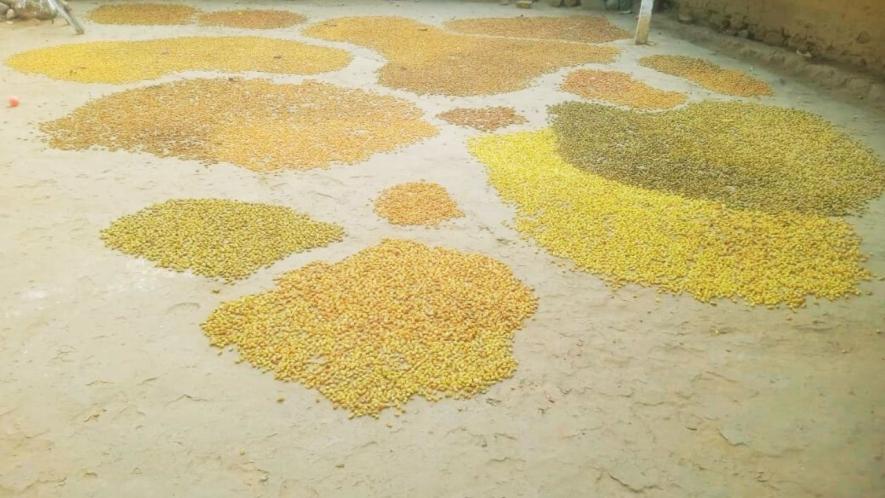
Mahua fermentation in a house
Despite being nestled within the Dandakaranya, I had often heard and read about Sukma in Chhattisgarh frequently for the violence and occasionally for its natural beauty. All this while, much like those around me, I saw Sukma as a region with a people coming from a different context. But it is only after spending some time with those very people does the illusion of us being different from them start melting away.
An empathetic approach, devoid of a paternal moralistic lens, can change how we look at problems and design interventions. Cultural biases (conscious or not) often influence policy-making, and my travels in Sukma revealed how policies devoid of cultural understanding can stifle the local economy. During my short sojourn in Sukma, the systematic suppression of native capitalism and the ironies of well-intentioned interventions of a neo-colonial state were quite evident to me.
The first thing that strikes your attention as you enter Sukma is the smokiness that permeates the region. Puzzled at first by the widespread burning of dry leaves in the surrounding fields and forests, I was told that it is a part of the process to make alcohol here. Making alcohol is a natural result of its normalisation in culture and tradition. Much like how a house in rural North India might offer us tea, we were offered different varieties of alcohol in every household we went to- Tadhi, Salphi and Mahua.

Mahua trees
The local brewery and wine economy was central to every household we visited, with at least one member actively involved in brewing alcohol. The nature of this economy, however, is still primitive. One youth informed us that he barters the alcohol he brews for vegetables in the weekly market.
The vegetable sellers, interestingly, are Bangladeshi immigrants who were resettled here after the refugee crisis of 1971. The exchange of alcohol does happen through cash as well. However, government-mandated trade restrictions have geographically restricted the market. An obvious example of colonial hangover, Tadhi and Mahua are still looked down upon as “inferior quality” alcohol. The policy continuity in the State’s approach to the brewery economy of this region can be described as neo-colonial.
The brewery economy of the region presents an opportunity to increase rural income through a linkage to urban markets. Mahua happens to be the only pot-distilled and fermented alcohol in the world (emphasis intentional) to be made from naturally sweet flowers.
Since the distribution network of alcohol in India is largely State-controlled, linking standardised and branded Mahua and Tadhi could have been a low-hanging fruit for well-intentioned post-Independence governments in the region. Unfortunately, State Morality, driven by Article 47 under Directive Principles of State Policy of the Constitution that advocates Prohibition, could only see brewing as a taboo to be tolerated at best and a problem to be solved at worst.
Lately, there has been some change in this approach. Mahua wine made by the Bhilai and Bhilala tribes, branded as Mond, has been introduced in liquor stores in Madhya Pradesh. The potential that market linkages offer to the brewery economy is captured by the fact that retail price of 750 ML of Mahua increases by nearly 1,500% when sold in such stores.
Even after accounting for additional layers in the supply chain, it is safe to assume that urban spending on alcohol, if directed toward the local brewing economy of tribes through process standardisation and product branding, has immense potential to boost rural incomes. More important, however, is the undoing of colonial bias that has been ingrained in policy-making in the country if this idea is to take shape.
Cultural biases in policies for the region extend beyond the brewery economy. Cock-fighting is an integral sport in this part of the country. While cock-fighting is not illegal per se, the betting involved in the sport (which was happening quite openly when I visited) is illegal.
What most policy-makers fail to see is that cock-fighting is more than just a sport. It is a cultural event that brings different sections of the society together and like any cultural event, cock-fighting gives a big boost to the local economy. In the cock-fighting scene that I witnessed, the men engaged in placing bets were complemented by rows of women sitting outside the fighting arena selling a wide range of produce- vegetables, fried potato, fish, watermelons and of course, Tadhi and Mahua- to the frantic audience.
The linkage between the sport and the demand for the women’s products was quite clear to me, much like how a sports pub in Mumbai might make more money on the night of a major sporting event. Instead of promoting this sport and supporting the women entrepreneur-based economy around it, cockfighting has been relegated to the status of an inferior sport in the country.
The State can play a stronger role in not only promoting cock-fighting across this belt as a regional sport but also standardising the rules around betting. Apart from improving cultural pride, more money coming into the sport will trickle down to the different women vendors who use the sport as an opportunity to sell their produce. Apparently, bull-fighting in Spain is cool but cock-fighting in Sukma is cultural shame.
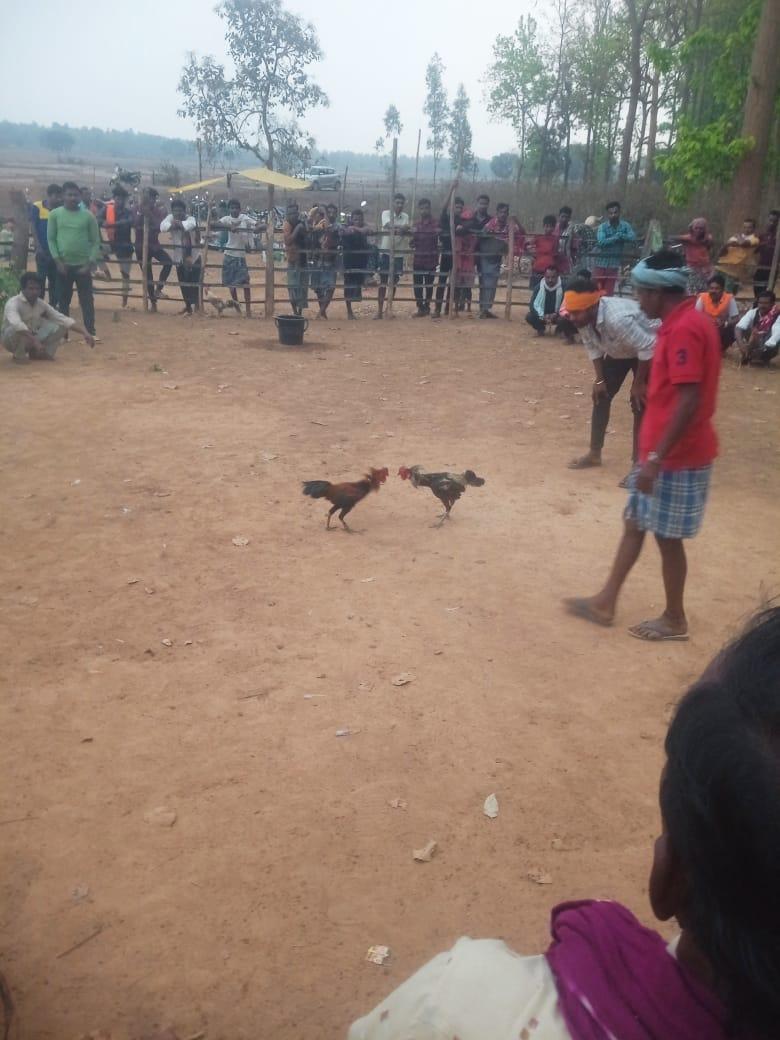
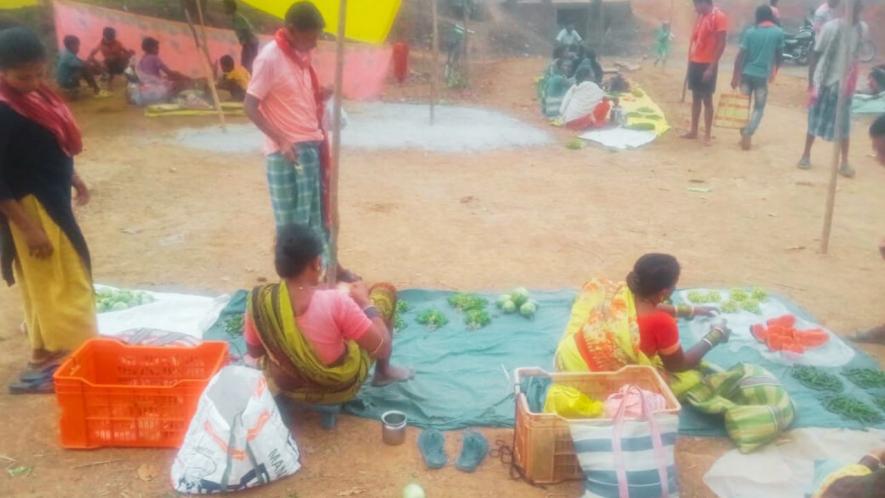
Men are engrossed in the sport while women use the event as an avenue to sell their produce
Unfortunately, neo-colonial sensibilities still dictate what we consider worth promoting and “scaling up”. The centuries-old condescending policy approach towards cock-fighting and local brewing continues to add to the cultural shame the natives of this region have had to endure. Ironically, corporates can get the license to produce Indian-Made Foreign Liquor (IMFL) and pseudo-betting apps can become the main sponsor on the jersey of the Indian Cricket Team but similar customs in the communities of Sukma are restricted by the same (pun intentional) system.
Coda: The suppression of native capitalism is ironically complemented by the success of its Western counterpart in Sukma. Youth here might be unlettered but Instagram, smartphones and Airpods (rather their Chinese-made copies) have a budding presence in the region. State failures in health and education are full of such ironies.
As I was leaving one of the villages, I could see “toilets” built under the Swachh Bharat Abhiyan being used as a store house in one of the houses. Another “toilet” had been repurposed as a resting place for hens who were about to lay eggs. I was later informed by the locals that this particular village is officially Open Defecation Free.
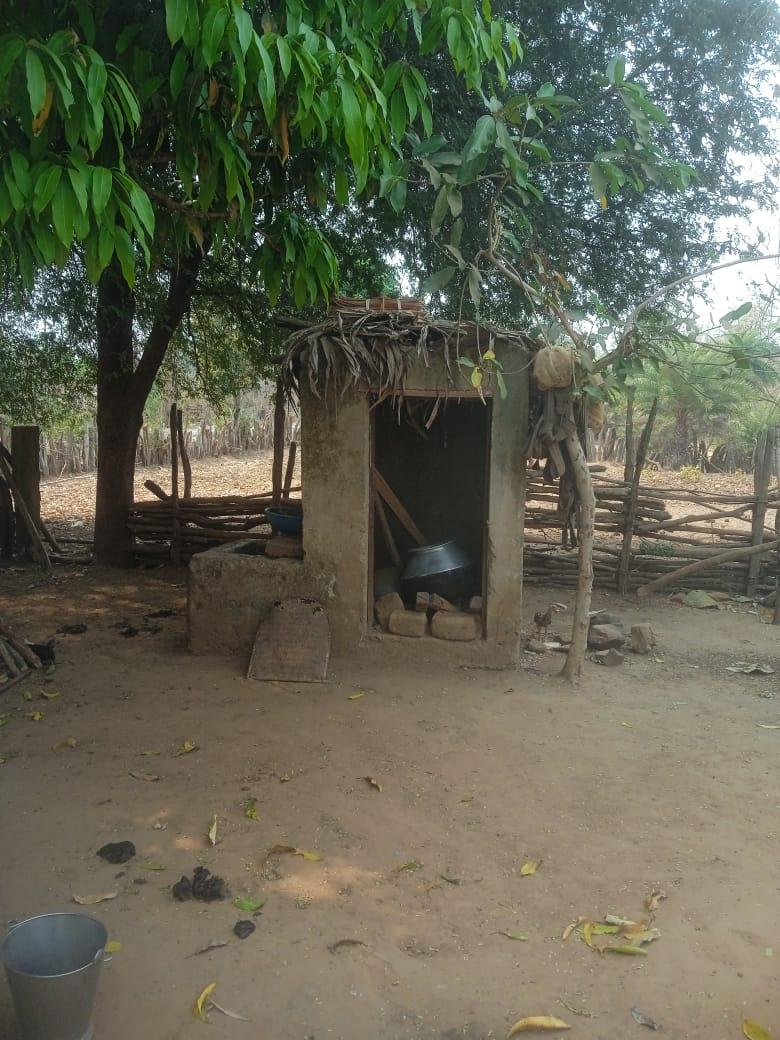
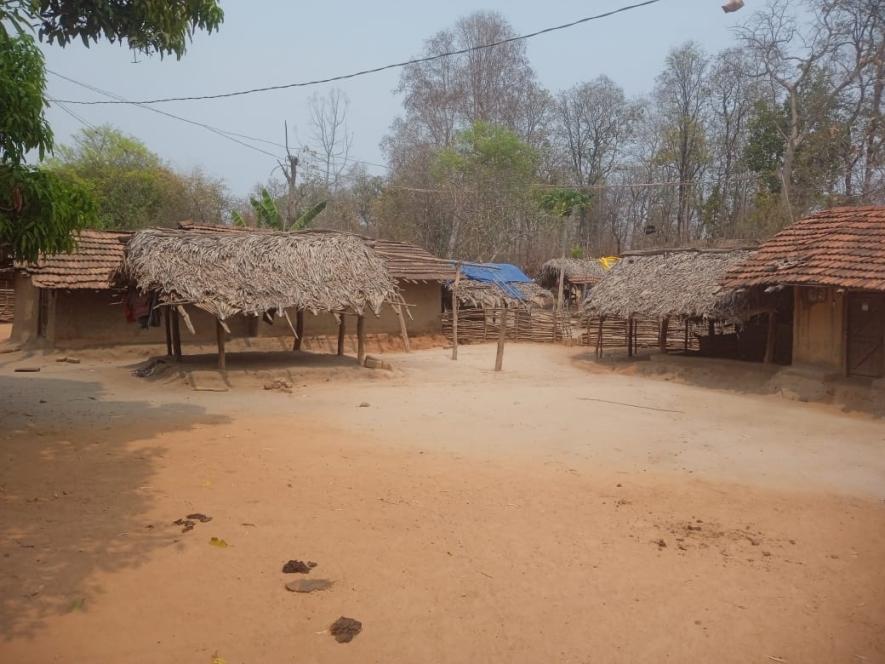
A toilet repurposed as a storehouse in an ODF village; state failure in education and health is evident in Sukma
The writer a Senior Manager in Pratham‘s Program Development Team with special focus on Skilling, Entrepreneurship and Livelihoods.
Get the latest reports & analysis with people's perspective on Protests, movements & deep analytical videos, discussions of the current affairs in your Telegram app. Subscribe to NewsClick's Telegram channel & get Real-Time updates on stories, as they get published on our website.
























